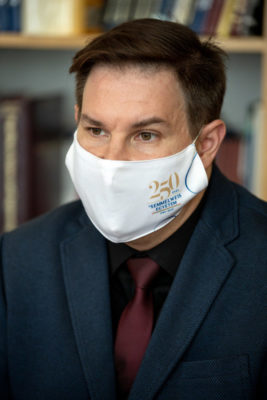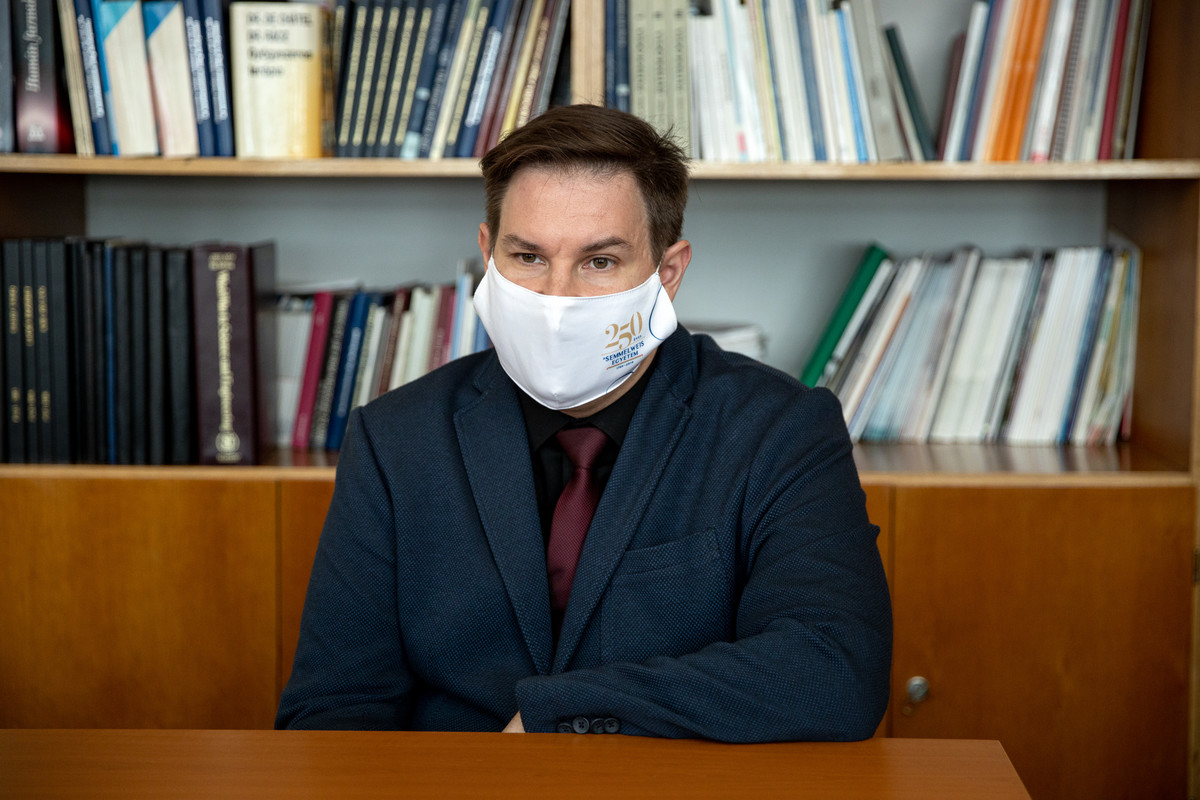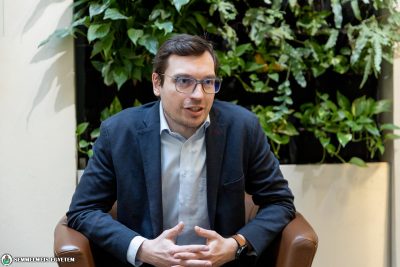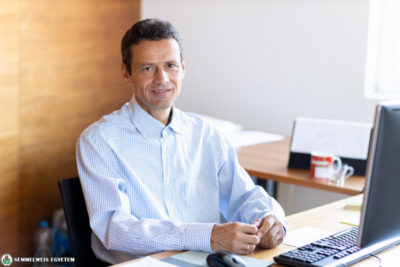 Dr. Tamás Tábi graduated from the university’s Faculty of Pharmaceutical Sciences in 2001 and has been working at the department for the past 19 years. He noted that he took over as director of the department just when the entire faculty is facing big changes. “On the occasion of the 250th anniversary of the university’s foundation, the curriculum of pharmacy training is also changing, which also affects us as the faculty’s newest department,” he said. He explained that their main tasks involve strengthening the education of medical-biology subjects, and that their core course of pharmacology and toxicology is expanding from two to three semesters, making it easier to absorb the extensive material. Regarding their other two courses – basic medical pathophysiology and drug therapy –, the lectures have been restructured and the number of seminars increased, making education more productive, he noted concerning the changes in the new curriculum.
Dr. Tamás Tábi graduated from the university’s Faculty of Pharmaceutical Sciences in 2001 and has been working at the department for the past 19 years. He noted that he took over as director of the department just when the entire faculty is facing big changes. “On the occasion of the 250th anniversary of the university’s foundation, the curriculum of pharmacy training is also changing, which also affects us as the faculty’s newest department,” he said. He explained that their main tasks involve strengthening the education of medical-biology subjects, and that their core course of pharmacology and toxicology is expanding from two to three semesters, making it easier to absorb the extensive material. Regarding their other two courses – basic medical pathophysiology and drug therapy –, the lectures have been restructured and the number of seminars increased, making education more productive, he noted concerning the changes in the new curriculum.
“In terms of the future of education and the department, I consider one of my most important tasks to be ensuring that the necessary human resources are available, which should be handled mainly from our internal resources,” said Dr. Tábi, noting that young people who conducted scientific work there are more loyal and committed to the department. He wants to create a working environment that ensures permanent staff on the long run. This is aided by the Hőgyes–Schöpf-Merei project, which will greatly improve the education infrastructure and place it in a 21st-century setting. Moreover, the new building will also function as a research center, providing new, modern infrastructure for ongoing research at the faculty, he added.
The Department of Pharmacodynamics has always stood out with its diverse research areas, with topics on the central nervous system dominating since the beginning, while research is also ongoing on drugs for Parkinson’s and Alzheimer’s disease, as well as on topics including psychiatric illnesses, depression, anxiety and treating migraines. Regarding his own research, Dr. Tábi highlighted studies in cell cultures examining the link between nerve cell damage and insulin, on how the latter can limit this kind of damage. There are also human genetics studies, as well as artificial intelligence-based and imaging research, he noted. “We have to keep up with diverse research activities in order to remain competitive, adapting to the prevailing trends,” he added. Dr. Tábi also said it is important for the department to diversify, therefore he plans to strengthen translational, innovative research as well.
Bernadett Bódi
Translation: Tamás Deme
Photo: Attila Kovács – Semmelweis University



